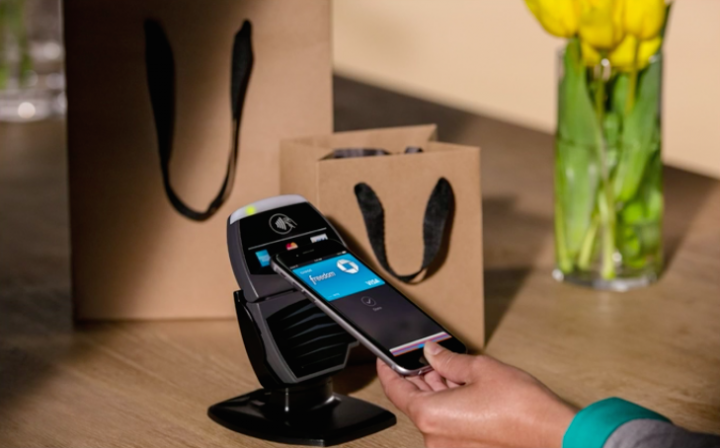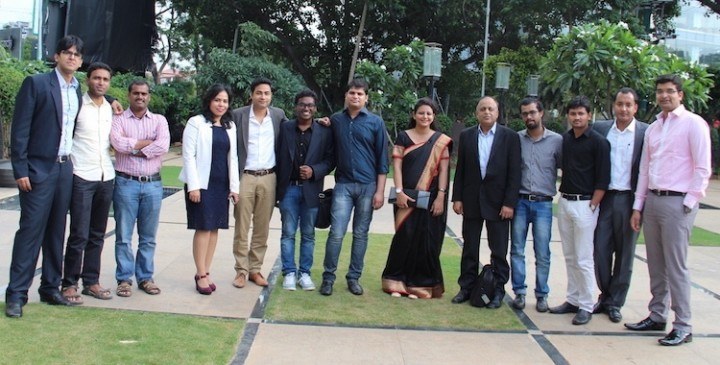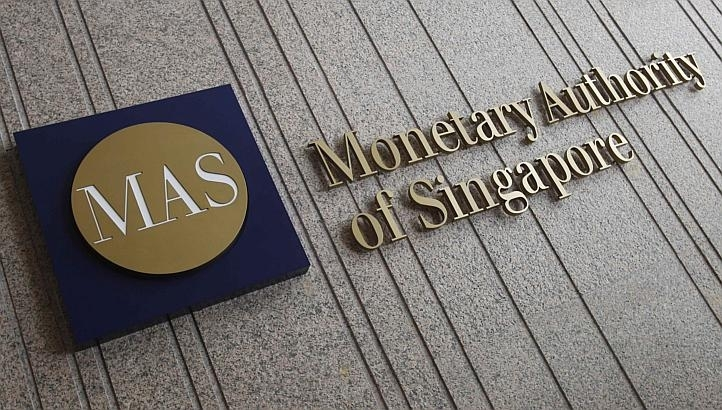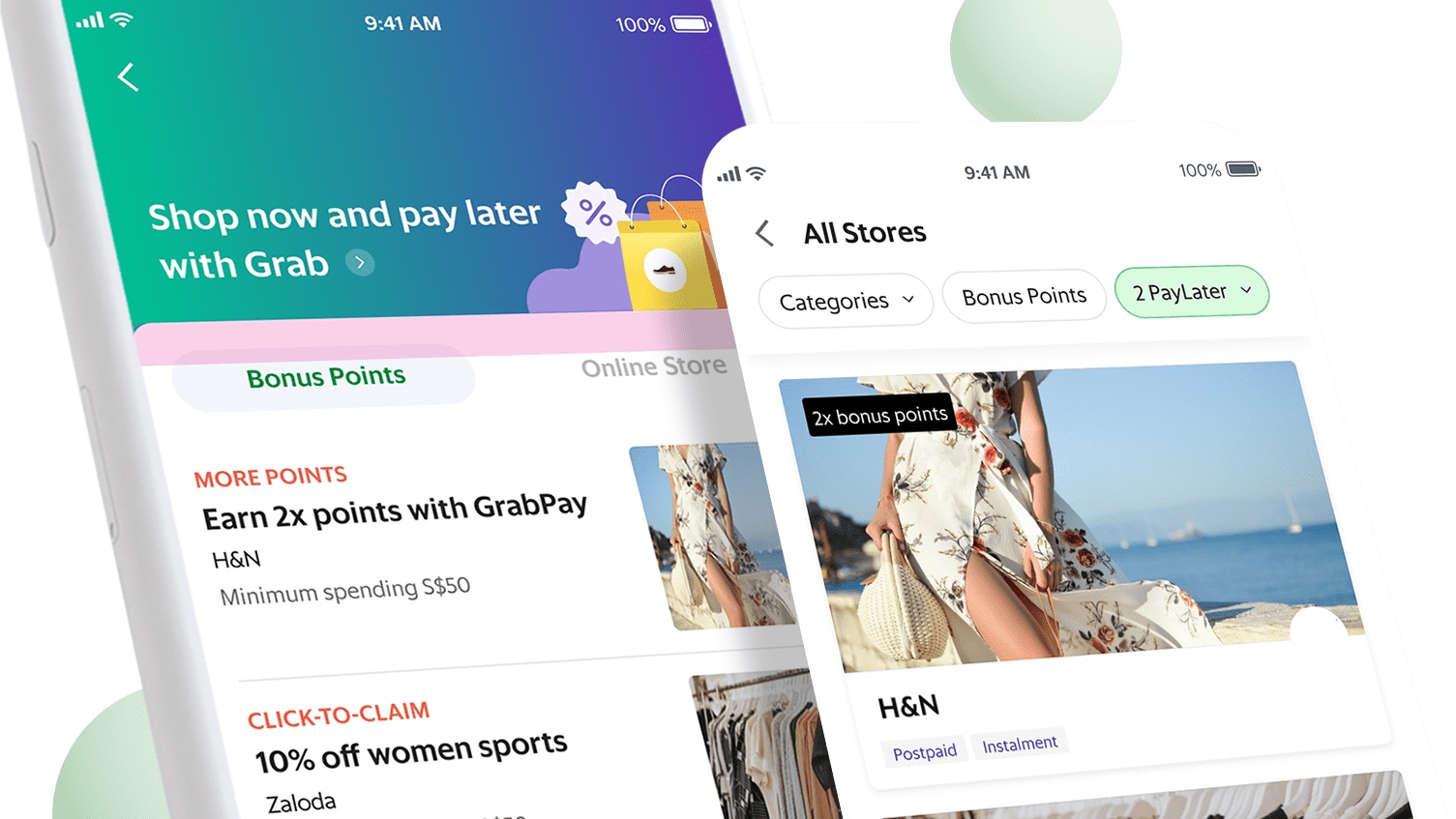This Indian startup is everyman’s Apple Pay

Last year, Apple unveiled a product to unshackle payments from plastic cards with “outdated and vulnerable magnetic interface, exposed numbers, and insecure security codes” – Apple Pay. To use it at an offline store, you simply hold up your iPhone, iPad, or Apple Watch to the merchant’s wireless payment terminal to pay. You don’t need to wake up your device or launch Apple’s Passbook app. There’s no need to dig out your credit card, worry about phishing, or search for small change either.
But here’s the catch: Apple Pay only works with the latest Apple devices. Not everyone has them, nor can many afford them. And it’s not enough if you have one. Merchants must partner with Apple, install specific hardware, and only then can they accept Apple Pay, because it will not work on their existing point of sale terminals. In India, most small merchants haven’t even graduated from cash to card payments, let alone become compatible with Apple Pay. It’s far easier to ring in the ToneTag.
This software product uses sound waves to bring the same convenience of contactless payments to any mobile device, even old brick phones. It can integrate with any digital wallet, work on any operating system – Android, iOS, Windows, Linux, Blackberry – or point-of-sale terminal, and power any mobile payment application. “Our technology provides tools to all stakeholders – merchants, issuers, acquirers, and consumers – to realize frictionless in-store and in-app mobile payments,” says Kumar Abhishek, co-founder and CEO of the Bangalore-based startup.
“You can just download the ToneTag app and in five minutes, you are good to go,” he adds. His company yesterday announced its first round of institutional funding. Indian conglomerate Reliance Capital’s venture fund arm invested US$1 million in it.
Toward a cashless economy

In India, only the big stores, malls, and ecommerce sites accept credit and debit card payments. Less than five percent of the 12 to 15 million SMEs (small- and medium enterprises) are equipped to swipe a card. So, almost everyone is forced to carry cash. This leads to small irritants like not having the right amount to pay the bill or merchants not having the change to return the difference. It can also cause more serious problems – like theft or mugging, with the crime rate climbing northward. Tech startups are, therefore, tackling this from different angles.
For example, Changer Mints has an NFC-based product to instantly transfer small change. Near field communication (NFC) technology enables devices to establish radio communication with each other. Apple Pay uses the same technology. Changer Mints raised a whopping US$10 million in its first round of funding.
Mumbai-based startup Mswipe, on the other hand, has a hassle-free POS device which can work with any mobile phone. Even brick phones. Plug it into the phone’s audio jack, launch the application, and you have a card reader ready for swipes.
But most of these solutions come with catches. They are device-specific. They have a hardware dependency. And mobile wallets which power in-app payments are not inter-operable. “Where there is a hardware dependency, adoption becomes difficult. And more or less, the banks which were enabling digital payments are forced to partner with the hardware manufacturers to roll out products like Apple Pay or Android Pay,” Abhishek points out.
“ToneTag is the only such product, globally, which solves all these problems,” he claims.
Ditching Infosys to start up

Vivek Kumar Singh and Kumar Abhishek, co-founders of ToneTag
Abhishek has over eight years of experience in the internet and mobile banking sector. Before starting ToneTag, he was working with IT services titan Infosys, implementing core banking products for a few of the large global banks. Over the course of his work, he became acutely aware of the gaps in the current internet and mobile banking products.
I wanted to make it better, give something more powerful in the hands of consumers. If it is not more powerful than paying by cards, nobody will use it.
Finally, he quit Infosys to build a new product. That was in 2013.
Founding a company also means a lot of legal and financial work. He reached out to Vivek Kumar Singh, who was then completing his chartered accountancy. “Vivek set up the company in two weeks and also started doing on-road interactions with some potential customers. That’s when I realized his operational expertise. He came onboard as co-founder,” Abhishek recalls.
Initially, they introduced a rough prototype called MobileGullak to study the mobile payments ecosystem. “We rolled out that product to see how a merchant and customer can interact over the phone. We ran it for one-and-a-half years, gathered insights, turned off the teaser, and rolled out ToneTag as our product,” Abhishek says.
One of ToneTag’s early mentors was Ram Sellaratnam, head of cloud for Infosys in Europe. Abhishek had worked with him earlier. So he bounced the idea off Sellaratnam. “He loved it. He not only invested in the company but also joined us as a director. That gave us confidence and boosted our leadership,” Abhishek says.

Team ToneTag
15 million merchants to convince
ToneTag is on a pilot run currently. It has roped in four Indian banks, including ICICI and Yes Bank, and three global banks: one in the Asia-Pacific region, another in London, and the third one in the Middle East. In India, it has also partnered with mobile wallets like MobiQwik and Paytm as well as POS-providers like EzeTap.
In the first week of September, ToneTag plans to throw open its apps for merchants and consumers. Around 50,000 retail outlets in India will accept payments through ToneTag by then.
“It took India more than 16 years to get 1.2 million EDC machines installed with merchants. (Electronic draft capture machines are computerized systems that collect data from debit and credit cards when they are swiped.) Almost 14 million merchants have bank accounts but no EDC machines. But they have mobile phones. Some have computers. So we are reaching out to them,” Abhishek says. And there lies ToneTag’s biggest opportunity as well as challenge. The potential clients number in millions, but how do you convince somebody who hasn’t even used an EDC to try a new technology? Abhishek believes ToneTag’s sheer simplicity and zero cost will do the trick in getting early adopters.
ToneTag was one of the five Indian startups which won the UK’s Great Tech Rocketships mantle. Earlier, it was picked as one of India’s 50 fast-growing technology companies by thinktank Indian Software Product Round-Table (iSPIRT).
ToneTag
ToneTag allows easy, frictionless, and secure proximity payments using soundwaves (tone) or NFC (tag), and enables contactless experience on any device.
- Location
- India
- Founded
- 2014
- Employees
- 11 – 50
- Website
- www.tonetag.com
- Latest Funding
- Series B
- Hiring
- 0 positions
Recommended reads
 Going solo could give Amazon Pay the edge in India
Going solo could give Amazon Pay the edge in India Will Blibli’s smartphone play be a game-changer?
Will Blibli’s smartphone play be a game-changer? Carousell names Ox Street founder as head of luxury
Carousell names Ox Street founder as head of luxury Singapore to open payment rails for NFIs like GrabPay, Razer Fintech, Singtel Dash
Singapore to open payment rails for NFIs like GrabPay, Razer Fintech, Singtel Dash Malaysia’s GHL extends Grab’s PayLater to offline merchants
Malaysia’s GHL extends Grab’s PayLater to offline merchants Vietnam’s Masan Group to invest $105m in SG fintech firm
Vietnam’s Masan Group to invest $105m in SG fintech firm Singapore fintech startup CardUp partners with Visa to launch in Hong Kong
Singapore fintech startup CardUp partners with Visa to launch in Hong Kong How this YC-backed startup is making it easier for businesses to manage payments
How this YC-backed startup is making it easier for businesses to manage payments Pinduoduo Q2 revenue up 36%, net income climbs 268%
Pinduoduo Q2 revenue up 36%, net income climbs 268% Fave names ex-Touch ‘n Go exec as chief product officer
Fave names ex-Touch ‘n Go exec as chief product officer
Editing by Terence Lee and C.Custer; second image by Amiya
(And yes, we’re serious about ethics and transparency. More information here.)









